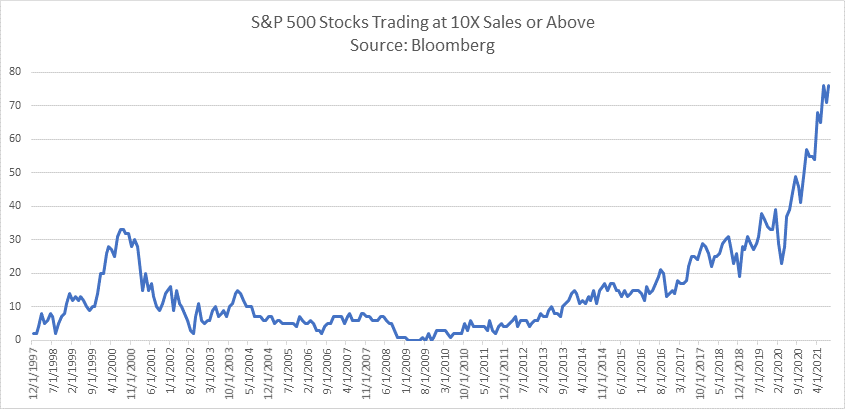
By Vlue @ Shutterstock.com
Dear Survivor,
OK, you know how I feel about your lazy cash sitting on its butt on your couch all day long. It’s time to get it up and moving. Time to get it working for you. Because summer’s over and chances are your cash is doing the same thing today as it was on the Fourth of July. Nothing. Not good. Don’t let inertia beat you down. This is your house.
But how do you get your cash working when it doesn’t listen to you? Easy. Remember, I’m Your Survival Guy not your “let’s throw some money at this and see how it plays out” guy. Your cash is as precious as ever, even though it drives you nuts sometimes.
A client emails: “Survival Guy: I just found fifteen thousand slackers sitting around on the couch, watching TV and doing nothing. I am sending them to you. Put them to work full time with no days off and no vacation. Hope all is well.”
If you recall, an investing newsletter, written for the discerning, conservative investor such as yourself, was delivered to your door once a month. It was delivered by your not-so-lazy mailman. You opened Richard C. Young’s Intelligence Report before you closed the front door, oftentimes reading it while standing in your foyer. “What’s Dick recommending this month?” you wondered.
Well if you remember Young Research’s Dynamic Maximizers then you know there’s a job to be had for your lazy cash. You don’t have to be greedy to be successful. You just have to keep on keepin’ on—go to work every day—and before you know it, all your cash is marching to the silent beat of compound interest.
Lazy Cash Wandering Docks at Newport Boat Show
“Permission to board? Should we remove our shoes?” Becky and I asked. A polite way to board a brand-new boat on display at the Newport International Boat Show. With docks loaded with giddy, lazy cash looking for some fun next summer, you can imagine the challenge it is to keep the decks free and clear of excess debris.
As Becky and I spoke with our local Grady White dealer and boatyard owner, we learned that if you want a new boat, you’ll have to get in line because dealer allocations are a fraction of what they were pre-Covid, thanks to a lot of things like a shortage of workers and supplies. Combine the shortage with the excesses of the lazy cash hoards looking for places to be spent, and you know where prices are anchored. And it’s not just last weekend’s intelligence gathering that’s concerning.
In speaking with a client, an owner of a major manufacturing business in the South, recently, he told me demand is great, but because of the supply chain issues, he can only meet fifty percent of it. On top of that, the forty-foot shipping containers he uses cost three to four times what they did pre-Covid, making that a major cost to consider like never before. It makes margins that much thinner and an over-order of supplies that much more costly.
You can see the tug of war between demanding lazy cash and discerning suppliers making the world go round. Meanwhile, lazy cash is throwing itself at the stock market like a drunken sailor. Look at my chart below of the companies in the S&P 500 trading at ten times sales, before factoring in costs of goods sold, never mind profit. Stay tuned.
Is This a Buying Opportunity? Of Course, It Is
If you’re a serious investor and you’re wondering what to do with your lazy cash, then stop what you’re doing and listen. Contrary to what you might believe, no one’s going to force you to do anything about that good for nothing lazy cash sitting in your favorite chair.
Your lazy cash may tell you all the news of the day, but what does it really know about earning a living, never mind investing? Well, Your Survival Guy is here to help because we all need someone who will do the dirty work like a Hollywood fixer. Why get your hands dirty?
As if it’s not annoying enough to listen to the talking heads about the “opportunities” in this market, the last thing you need in your day is some smarty pants lazy cash sitting around telling you how to live your life. You’re the boss. If your lazy cash sits around telling you the world is coming to an end, how are you supposed to take action? It’s scary out there. The last thing you want to hear is, “I told you so.”
Think about the cash you have in terms of objectives, in terms of your cash living a productive life. Because we know, all cash is different. Yes, of course, you want a stash of cash in your home safe. Yes, you want a pile at your bank for WTSHTF. But how much more beyond that do you really need, and by doing nothing about the rest, doesn’t inflation make the first two less valuable? Your cash ain’t runnin’ as fast as it once did.
Your cash can do more for you, and yes, it can actually get up in the morning and go to work. It can also pay you while you sleep. But it doesn’t have to be a swing-for-the-fences approach either, which I despise. Serious investors understand the virtue in patience regardless of the market. But come on, one can only have so much PATIENCE. Time to get to work.
Survive and Thrive this Month.
Warm regards,
E.J.,
“Your Survival Guy”
- If someone forwarded this to you, and you want to learn more about Your Survival Guy, read about me here.
- If you would like to contact me and receive a response, please email me at ejsmith@yoursurvivalguy.com.
- Would you like to receive an email alert letting you know when Survive and Thrive is published each month? You can subscribe to my free email here.
- You can also follow me on Gab, MeWe, and Gettr.

By Teri Virbickis @ Shutterstock.com
P.S. As you and I discussed recently, big blue cities are exporting jobs to places like Florida, where their money is treated with respect. Today, let’s talk about Main Street America that’s been forgotten by big businesses that have moved America’s manufacturing base to China. How can this be a good long-term trend? I remember like it was yesterday, studying globalization—“the next big thing.” Now, look at where we are.
But attitudes are changing. One thing I noticed from a trip to our log cabin in New Hampshire this summer was, the area in and around the beautiful White Mountains were packed with people. Something tells me there’re more looking to make the area home and not just a vacation destination. Areas that used to be only for vacation are the new staycation destinations.
People are rushing to the countryside because they want their freedoms restored. In blue states like Oregon, governors have gone wild. The state’s governor, Kate Brown is being sued by the state’s police and firefighters who don’t want to be forced to take vaccines. Those who have spoken up against the mandate have already been retaliated against. Watch the video below to see Officer Zachary Cowing speak against Brown’s mandate. He’s since been suspended.
Is it any wonder people are trying to escape the city life and find a new home in America’s growth corridors?
There will be growing pains as those looking for some peace and quiet in off-the-beaten-path areas are now running into the masses at the post office and grocery store. The biggest takeaway will be the ability for families to stay intact as seasonal areas become year-round boomtowns. Stay with me. Sign up for my free monthly Survive & Thrive newsletter. But only if you’re serious.

By Corona Borealis Studio @ Shutterstock.com
P.P.S. You probably never imagined an America where shortages are “now the norm.” But that’s exactly how the Biden-economy is being described by Reuters. Howard Schneider and Timothy Aeppel report for Reuters:
Shortages of metals, plastics, wood and even liquor bottles are now the norm.
The upshot is a world where buyers must wait for delivery of items that were once plentiful, if they can get them at all. [Lauren] Rash [owner of Diamond Brand tent manufacturer] has piles of tents she can’t ship because she can’t get the right aluminum tubing for their frames, for instance, while others lack the right zippers.
Along with the shortages come hefty price increases, which has fueled fears of a wave of sustained inflation.
There’s growing tension among Federal Reserve policymakers over how to gauge the long-term impact on prices. Some Fed policymakers are more convinced than others that price pressures will recede after some of the supply chain disruptions are resolved. How this debate evolves could influence how quickly the Fed moves to reduce the pace of asset purchases launched at the start of the pandemic, and how soon it lifts the policy interest rate from its current level near zero.
You have watched as shortages of fuel, food, lumber, and other goods have plagued America and sent prices soaring with inflation not seen in decades. The volatile prices of Bidenomics are breaking Americans’ confidence, and destroying their savings.
To most Americans, shortages are something that happen elsewhere, communist countries, third world nations, disaster-hit areas. They’ve never conceived of shortages at home. But when government begins messing with the supply chain, and governors go wild with regulations and shutdowns, and “free” money starts flowing, you begin to see the effects government interventions can have on the economy, and they aren’t pretty.
Shortages for tent velcro and aluminum tubes might not mean a lot to you if you’re not buying a tent, but the same forces disrupting the supply chain for tent poles are acting on the things you do care about. Food, fuel, housing, services, and everything else you buy are being affected by the same stimulus payments and Federal Reserve policy. It’s time to prepare yourself for the future.
P.P.P.S. You know it’s no fun getting homework, especially on a Friday. But this is too important to let the weekend go by without thinking about what I’m about to write. Because every now and then, there’s a piece of research or an article that’s a game-changer, like this chart below, showing you the madness in the stock market and probably in your mutual funds and ETFs.
But that’s not my focus today because recently, I read one of the most important articles I’ve ever read on annuities and life insurance, two areas Your Survival Guy eschews and treats like rat food, that the article deftly illustrates and has been one of my biggest concerns. But before we get into that, let me tell you, I have no problem with the brokers who sell insurance.
Why? Because you’re usually introduced to an annuity or life insurance product simply living in your hometown by a broker you’ve known for a long time. You see him at events. You like him. You trust him, and you like doing business with him, plus his office is close by, making it easy for you to stop in if you need to. This personal relationship is what I love about the insurance business.
But (you knew that was coming) problems arise when the insurance company he works for sells your annuity or life insurance to another company that’s, let’s say, a not-so blue-chip operator. Insurance companies do this all the time and, especially now, are dropping parts of their business (you?) faster than Biden’s approval ratings. Why?
Look, it’s no fault of your own to be lured into buying a product that guarantees positive returns with no losses like an indexed annuity. But think about that for a second. Do you really think insurers are in the game so you invest and they lose? Please, of course NOT. Look at what’s going on with the ESG racket and you quickly realize, “I get it, it’s you invest, they win.” Ahhhhh, silly me.
Right now, insurers are selling their overpromised book of annuities and life insurance businesses. They’re selling them to hedge funds, smaller companies, and or the private equity guys. Is that a problem?
Well, imagine when you first bought your house and a mortgage. You write a check to the same bank for months or years, and then one day, a letter arrives in the mail letting you know your mortgage has been sold to XYZ Bank, and to send the checks to them, thank you very little. No big deal because you have your house. But when your annuity or life insurance is sold to a lesser provider, how do you know they’ll be able to make good on the promises you initially signed up for?
You don’t. And now you’re months or years older where if you want to get your money back, you might be faced with egregious surrender fees. Or worse yet, your health ain’t what it used to be, so you’re never getting a new life insurance policy. So you’re stuck, and you just hope and pray it all works out. As my father-in-law, Dick Young, reminds us, “HOPE IS NOT A STRATEGY.”
You know what? We’re lucky to have Leslie Scism at The Wall Street Journal, who wrote “Who Owns Your Life Insurance Policy? It Might Be a Private-Equity Firm” sticking her neck out to bring this intelligence to us. Believe me, there’re some big-time fights going on behind closed doors. Just read the article to see why. It’s breathtaking how a nice relationship and agreement you had with your trusted local insurance agent can turn into you being stuck with an owner you never thought you’d do business with. Now what?
Scism writes:
Americans own more than 160 million individual life insurance and annuity policies. A big, unexpected change is ahead for many of them.
Traditional life insurers are leaving the business in droves. The responsibility for death benefits, which might be a half-century away, or for annuity income streams that run over decades, is increasingly in the hands of a new breed of insurance-company owner.
The growing wave of deal activity is unsettling to some policyholders who had chosen well-established and often strategically conservative companies in the 262-year old U.S. life-insurance industry. In some cases, a key component of families’ financial planning suddenly is in the hands of newcomers, some known for investing in distressed companies and unusual securities. Moving to a new carrier isn’t always simple or affordable depending on their age or declining health.
The newcomers, which include private-equity, asset-management and other investment firms, often believe they are scooping up insurers on the cheap, or are attracted to the premiums paid by policyholders that they will be able to invest for fees. Some are acquiring entire insurance companies, and others are buying stakes in them. Policyholders who bought life insurance from Allstate Corp. unit Allstate Life Insurance Co. ALL 0.35% , for instance, soon will rely on entities managed by Blackstone Group Inc. BX 1.01% to pay their beneficiaries after they die.
The steep drop in interest rates since 2008 is a driving force behind the deal frenzy. It has led traditional insurers, which invest policyholders’ premiums and the capital backing up their obligations primarily in plain-vanilla bonds, to retreat from products most hurt by low rates. Many are unloading blocks of old policies and annuities. More deals are expected, as shareholders pressure publicly traded insurers to ditch businesses that drag down returns.
Many new owners think their expertise with less-common investments, such as privately placed corporate debt and asset-backed securities, will give them an edge over more cautious insurers. The new guard sometimes invests in unusual things—like the Los Angeles Dodgers baseball team. But their investments generally are only modestly riskier than traditional insurers’, and they on average hold more cash and have larger capital cushions as an offset, according to an analysis by ratings firm A.M. Best.
So far, more than two dozen investment firms own or control 50 U.S. life-insurance companies out of just over 400, according to Best’s data. The new owners’ insurers total more than $600 billion of assets, according to Best.
Principal Financial Group Inc., which has been in the life-insurance business for 142 years, is in the process of discontinuing sales of individual life products and certain types of annuities to U.S. consumers, and is looking for ways to potentially divest old blocks of business. Hartford Financial Services Group Inc. and Voya Financial Inc. have exited entirely insurance and annuity sales to individuals, including through divestitures.
MetLife Inc. spun off the bulk of its U.S. retail operations, and American International Group Inc. has a public offering of its life-insurance and retirement-services unit planned. AIG is selling a 9.9% stake in the unit to Blackstone, which will manage a portion of the assets. Last week, Prudential Financial Inc. said it reached a $1.5 billion pact to sell an annuities unit to Bermuda-based Fortitude Re, which is backed by investors including Carlyle Group.
The new guard includes affiliates of Apollo Global Management Inc. and KKR & Co. Ranks also include smaller firms that most ordinary Americans wouldn’t know.
“The restructuring in the insurance industry isn’t showing any sign of slowing down,” said James Belardi, chairman and chief executive of Athene Holding Ltd. , an insurer that Apollo helped launch in 2009.
Smaller investment firms with limited resources are increasingly seeking to do deals, say industry bankers, lawyers and consultants. Consumers may face more risk if these buyers replace financially strong parents, particularly if they aim to invest aggressively.
A lot is riding on state insurance departments. They must approve all deals to weed out inexperienced buyers who wouldn’t be able to weather tough times. They also have ordered extra consumer protections to approve transactions such as requiring the buyers to hold higher levels of capital than customary.
Some policyholders and annuity owners are alarmed when a company has handed off their business. Some hear about deals from headlines, and some from agents. Others find out when the new owner sends a letter announcing a name change.
Note from Your Survival Guy: Read this last paragraph again.
Download this post as a PDF by clicking here.
E.J. Smith - Your Survival Guy
Latest posts by E.J. Smith - Your Survival Guy (see all)
- Rule #1: Don’t Lose Money - April 26, 2024
- How Investing in AI Speaks Volumes about You - April 26, 2024
- Microsoft Earnings Jump on AI - April 26, 2024
- Your Survival Guy Breaks Down Boxes, Do You? - April 25, 2024
- Oracle’s Vision for the Future—Larry Ellison Keynote - April 25, 2024




















